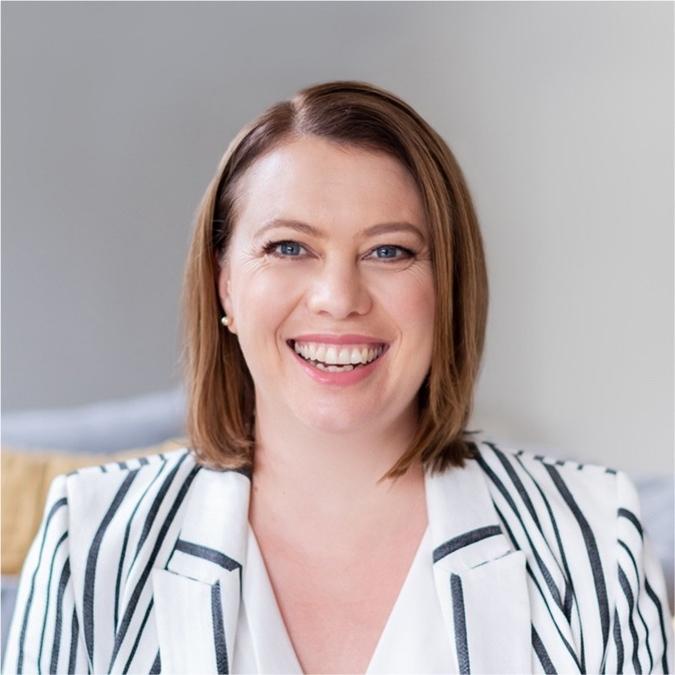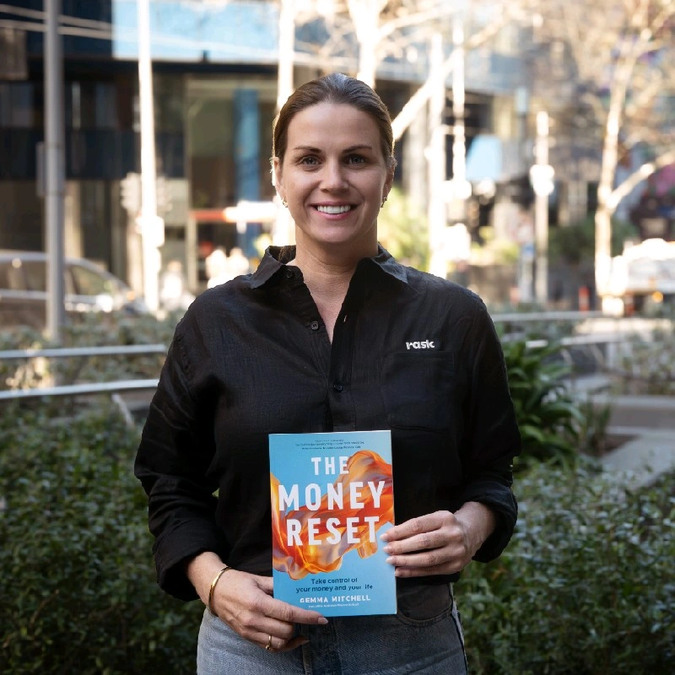
Anyone can dole out financial advice - your mum, your dad, your dad's friend, or some guy on the Internet. They may tell you how to spend your money or how to make more money based on what works for them.
Should you listen? Perhaps. But should you follow them? Maybe not so fast if you truly want to get your finances sorted.
In Australia, anyone who gives personal financial advice must have an Australian Financial Services (AFS) licence. Without this or being an authorised representative of an AFS licence holder, an individual cannot legally provide financial services.
"At a minimum, a financial adviser must be listed on ASIC's Financial Adviser Register. That register will confirm their qualifications, licence, and any past disciplinary actions," financial planner Nicola Beswick told InfoChoice.

Nicola Beswick, financial adviser
This legal requirement is what separates a casual opinion from professional guidance. In other words, their advice is not just based on personal experience or someone's words passed on to them; it's backed by training, regulation, and accountability.
However, that doesn't automatically mean everyone needs one.
Do You Really Need a Financial Adviser?
There is no one-size-fits-all answer to this question. Generally, it largely depends on your financial circumstances. You see, the core role of a financial adviser is to guide clients toward achieving their financial goals while complying with strict regulations.
If you're goal is to "save money" or you're still building the foundation for your financial future, getting professional help may not be the only solution.
"Australians don't always need a financial adviser, especially in the early stages," Gemma Mitchell, a licensed financial adviser and book author, told InfoChoice.
She continued, "It would be great to have that expert oversight early on, but cost and accessibility can be barriers to Australians getting financial advice, so self-education is really important."
In most cases, people who don't have savings yet typically can't afford the services of a financial adviser. This is where online resources or even personal advice from someone you trust and actually has something to show for it can be useful for building financial literacy, such as how to budget, save, and help shift your money mindset.
If you're looking to build your savings, consider parking your funds in high-interest savings accounts.
| Bank | Savings Account | Base Interest Rate | Max Interest Rate | Total Interest Earned | Introductory Term | Minimum Amount | Maximum Amount | Linked Account Required | Minimum Monthly Deposit | Minimum Opening Deposit | Account Keeping Fee | ATM Access | Joint Application | Tags | Features | Link | Compare | Promoted Product | Disclosure |
|---|---|---|---|---|---|---|---|---|---|---|---|---|---|---|---|---|---|---|---|
1.55% p.a. | 4.45% p.a. Intro rate for 5 months then 1.55% p.a. | $555 | 5 months | $0 | $99,999,999 | $0 | $0 | $0 | |||||||||||
0.01% p.a. Bonus rate of 4.14% Rate varies on savings amount. | 4.15% p.a. | $846 | – | $0 | $99,999,999 | $1 | $0 | $0 | |||||||||||
0.10% p.a. Bonus rate of 4.15% Rate varies on savings amount. | 4.25% p.a. | $867 | – | $0 | $99,999,999 | $$formattedMinMonthlyDep.format("%,d",$!{product.minimumMonthlyDeposit}) | $0 | $0 | |||||||||||
4.25% p.a. | 4.25% p.a. | $867 | – | $0 | $4,999 | $0 | $0 | $0 |
"Where advisers really add value is once those foundations are in place. That's when more complex decisions come up, like structuring investments, tax strategies, protecting what you're building, or planning for retirement," Ms Mitchell said.

Gemma Mitchell, financial adviser and author of 'The Money Reset'
A financial adviser helps their clients look at the whole picture, which includes personal circumstances, super, investments, properties, tax, debt, assets, life, goals and more, and then craft a plan that's both customised and optimised for them.
Benefits of Using a Financial Adviser
Working with a licensed adviser isn't just about getting investment tips or money-making hacks; it's about having a trusted professional in your corner who can help you see the bigger picture.
Access to expertise
A financial adviser can provide you with expert insights into complex areas like investments, superannuation, tax, insurance, and retirement planning. They stay up to date with changes in legislation, market conditions, and financial products, so you don't have to.
"Each year, a financial planner has to do a certain number of hours of studying," Brenton Tong told InfoChoice. Mr Tong is a financial adviser and the managing director of a financial planning firm.
This level of expertise can be particularly valuable if you have complex needs such as running a business, managing multiple income streams, or planning for intergenerational wealth.
Save time and reduce stress
Developing a tailor-made financial plan and providing suitable advice requires assessing several factors, crunching multiple datasets, researching and comparing options, and reading the fine print. A financial adviser can free you from hours of planning, legwork, and stress.
"Genuine holistic financial advice is going to take all your data points and bring them together with a strategy and a series of recommendations. We'll spend many hours working on our clients' files, and that's focused professional work by people who know what they're doing," Mr Tong explained.
"It's a serious time commitment, which a lot of people don't have."

Brenton Tong, financial adviser
Avoid emotional mistakes
Money can be emotional, particularly when markets swing or personal circumstances change. It's not uncommon for DIY investors to make decisions based on fear or greed (i.e., selling too soon in a downturn or chasing quick wins).
"A financial adviser can offer objectivity to keep you aligned with your long-term plan instead of reacting impulsively to short-term events. They are there to hold you accountable and guide you when circumstances change," Ms Beswick said.
Qualifications and Licences You Should Look For
-
Australian Financial Services Licence - The foundational licence issued by ASIC under Chapter 7 of the Corporations Act 2011. It authorises entities to carry on a financial services business, such as providing financial product advice and dealing in financial products, among others. Without this, an individual cannot legally provide financial services.
-
Registered as a 'Relevant Provider' on the Australian Financial Services (AFS) - From 1 February 2024, any individual providing personal advice to retail clients on relevant financial products must be registered with ASIC as a Relevant Provider.
-
Professional and Educational Standards - Relevant providers must meet ASIC's qualifications standard, typically through an approved university degree or equivalent. This applies to those practising before reforms and new entrants.
-
Minimum Training Requirements (RG 146) - Under ASIC Regulatory Guide 146, advisers must receive specified training and pass exams to demonstrate competence before giving retail financial advice.
-
Other qualifications - "Advisers may hold other qualifications like a CFP [certified financial planner], Aged Care or SMSF [certificate], but these are not mandatory - it shows more about their education and skills in these specific specialist areas," Ms Beswick said.
Independence and Conflicts of Interest
In Australia, the term "independent" is legally defined. A financial adviser can only use the term if they don't receive commissions, volume-based payments or gifts; don't have ties to product issuers; and only charge fees paid by the client.
Quick tip: You can request to see the adviser's Financial Services Guide at your first meeting to determine any potential conflicts of interest. - Nicola Beswick
But does this mean you should only opt for independent advisers?
"True independence in Australia is actually quite rare," Ms Mitchell said.
"To legally call themselves independent, an adviser can't take commissions or percentage fees. While that sounds good in theory, it also means those advisers can't use these payments to help offset the cost of giving advice, which can make their services more expensive and harder for people to access," she added.
Instead, Ms Mitchell argued, the focus should be on transparency.
"Ask your adviser directly how they're paid and whether they receive any incentives. Even if they're not technically independent, what matters is that they're upfront about fees, work on a clear structure, and act in your best interests."
Types of financial advisers:
-
Independent - No product or commission ties
-
Aligned - Works under a licensee linked to a bank or financial institution
-
Product-tied - Restricted to recommending certain financial products
According to Mr Tong, it's ideal to seek a financial adviser who's not product-tied.
"Not all independent planners are good, and not all non-independent planners are bad. But not being influenced by the products being recommended is a good start," he said.
Key Questions to Ask in Your First Meeting
A good financial adviser must not only have all the qualifications and knowledge about complex financial concepts, they must also have your best interests at heart. Trust, a good level of comfort, and experience dealing with clients with a similar situation are also vital before deciding on an adviser.
"Even a short 15-minute chat can help you understand their experience, whether they've worked with clients in similar situations, and if you feel comfortable with their style," Ms Mitchell said.
"The technical skills matter, but so does finding someone you trust and feel you can work together with as a team."
Here are some of the questions you can ask during your first meeting:
-
"How are you paid?"
-
"Who do you work for?"
-
"What qualifications and licences do you hold?"
-
"What does a good outcome look like for you in this relationship?"
-
"What does your advice process look like, and how often will we review things?"
-
"Can you tell me about a time you helped a client in a situation similar to mine?"
Asking them to explain who or what kind of person they like dealing with or have experience in is also important.
"Some advisers have a specific type of person they like working with and skills that may also relate to your situation and what you are looking for guidance on," Ms Beswick said.
Some financial advisers may only want to work with investors, business owners, retirement planners, or someone with money and wants to know what to do with that money.
"These sorts of questions reveal whether the adviser puts your needs first, and whether their values align with yours."

Meet with your prospective financial adviser first to assess whether they are the right fit for you.
Red Flags to Watch Out For
According to Ms Mitchell, some warning signs include the following:
-
Not being upfront about fees or avoiding the question.
-
Talking about products before they've even asked about your goals.
-
Using lots of jargon instead of explaining things simply.
-
Making promises that sound too good to be true, like guaranteeing returns.
-
Rushing you into decisions.
Be wary if the adviser talks more about products than you and your goals, or if they are pushing you toward a particular investment or strategy without actually getting to know you.
Also consider how you feel in the conversation.
"If you leave a meeting feeling confused or pressured rather than informed and confident, then that's a great sign that they are not the right fit for you," Ms Beswick said.
How Much Does It Cost to Get Legal Financial Advice?
Financial advice fees vary depending on the financial adviser and the complexity of the service you require.
Common fee models in Australia include flat fees (typically between $2,000 and $5,000 for initial advice), hourly rates ($200-$600 per hour), or a percentage of assets under management.
Types of fees a financial adviser may charge include the following:
|
Fee type |
Purpose |
Paid how |
|
State of Advice fee |
For preparing your SOA |
Upfront or added to ongoing fees |
|
Fee to implement financial advice |
For implementing financial advice (e.g. opening accounts or purchasing investments) |
Upfront based on the value of assets |
|
Fee for financial advice |
For advice and services like phone calls, reviews, etc. |
Ongoing (typically monthly) |
|
Fee for review |
For reviewing your financial plan and implementing any changes |
Upfront |
This can vary depending on the adviser
You may ask for a copy of an adviser's Financial Services Guide (FSG) to compare fees and services among different providers.
Information on FSG includes:
-
Services they are authorised to offer and product areas they can advise on
-
How they charge and earn commissions
-
Who owns the company
-
Any links to product providers
-
The adviser's AFS licence number
-
How they deal with complaints.
The FSG may also be available on their website.
How to Choose the Right Financial Adviser for You
A financial adviser can be a valuable partner in achieving your financial goals, so choosing one shouldn't be rushed.
"A client-adviser relationship is a delicate balance between being a leader and a servant. Your financial adviser has to be flexible to your needs, but also give you guidance where necessary," Mr Tong said.
Make sure you meet and sit down with the financial adviser to ask them all the key questions and properly assess and get the "feel" of whether the relationship is the right fit. Balance qualifications, fees, transparency, and personal rapport.
It's ideal to compare at least two or three options. Take your time to meet them, read their FSGs, and do your due diligence.
Ultimately, trust your instincts. Do you feel comfortable and respected? A trustworthy adviser will want to understand your goals, your values, and your worries.
As Ms Beswick put it, "Trust and comfort are just as critical as technical skills when choosing an adviser."
Header and in-text images from Pexels; Nicola Beswick, Gemma Mitchell, and Brenton Tong images supplied




